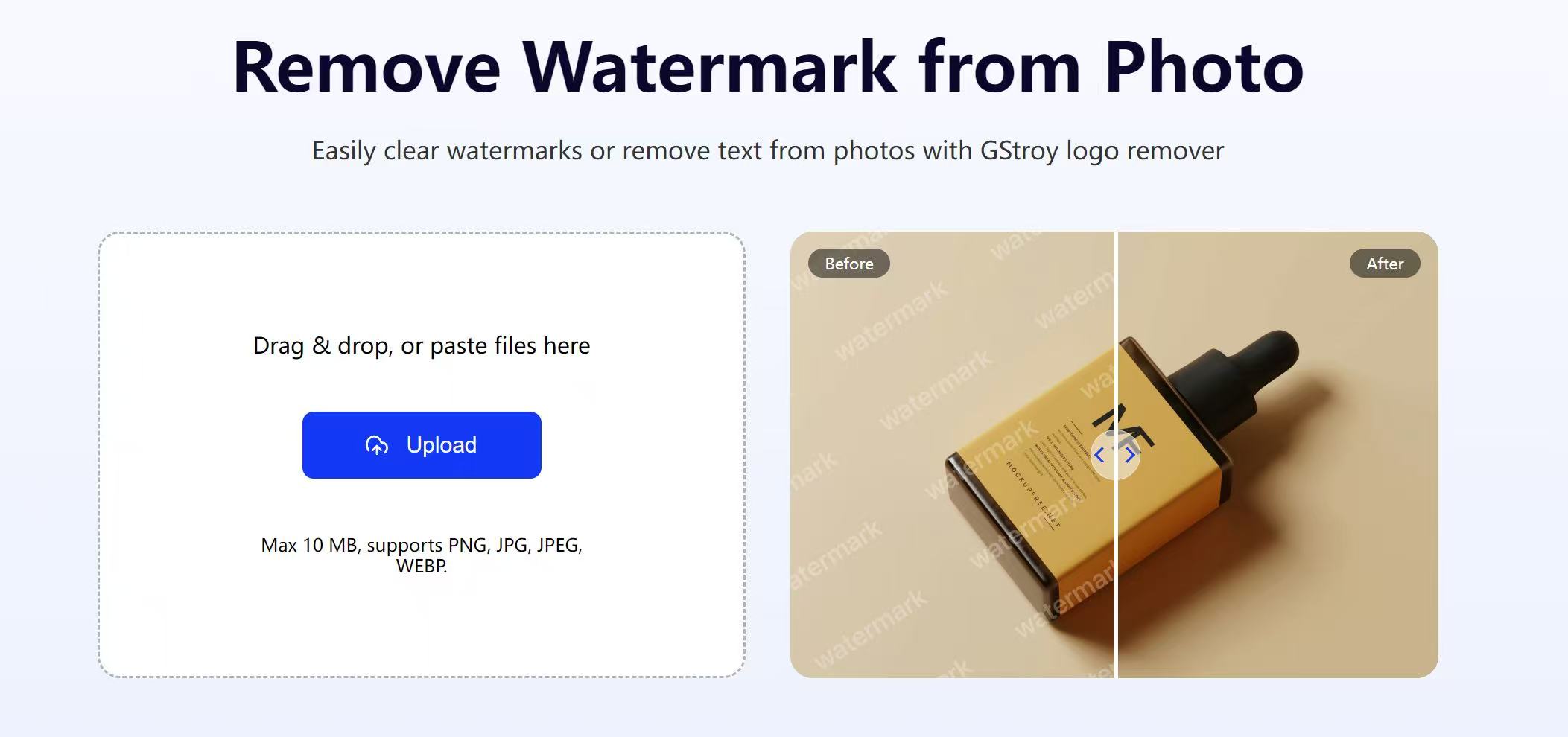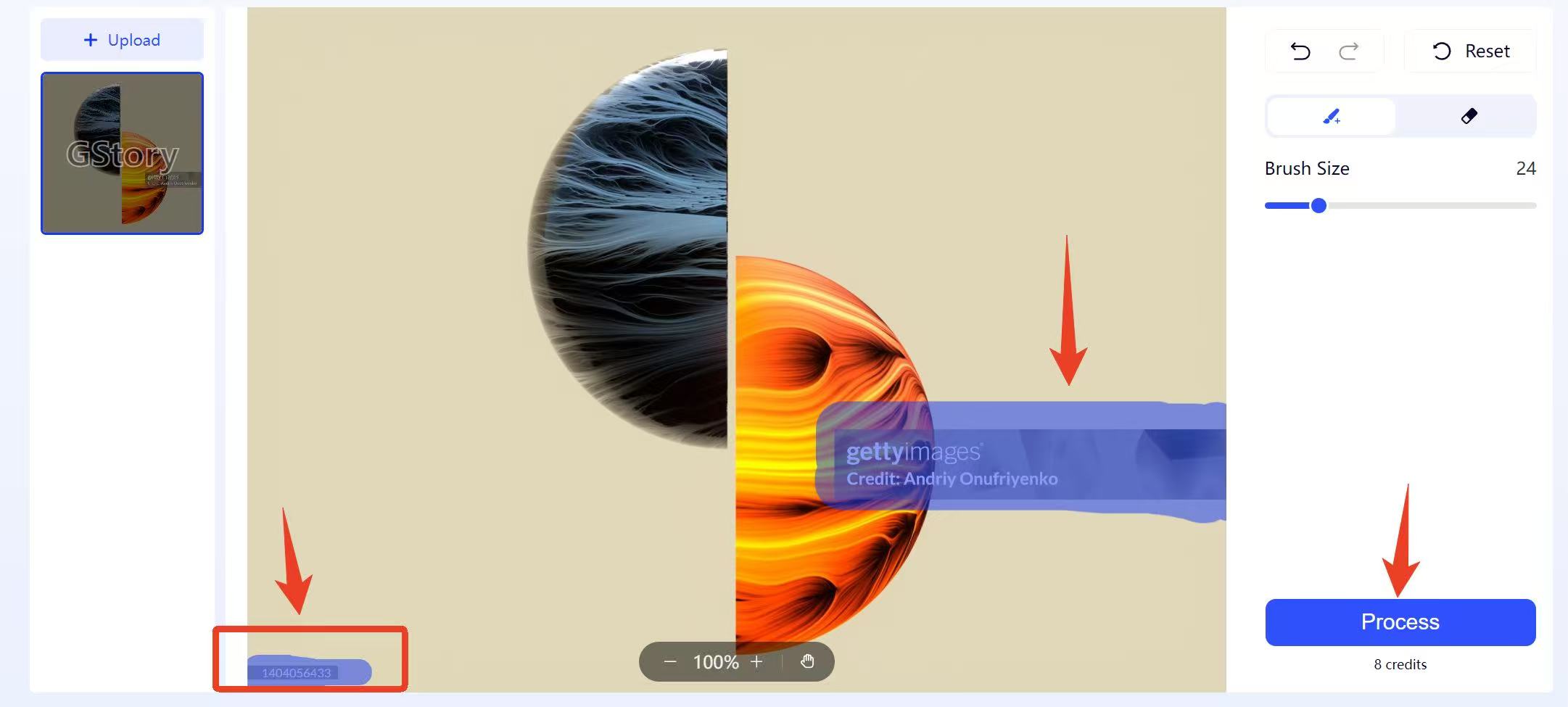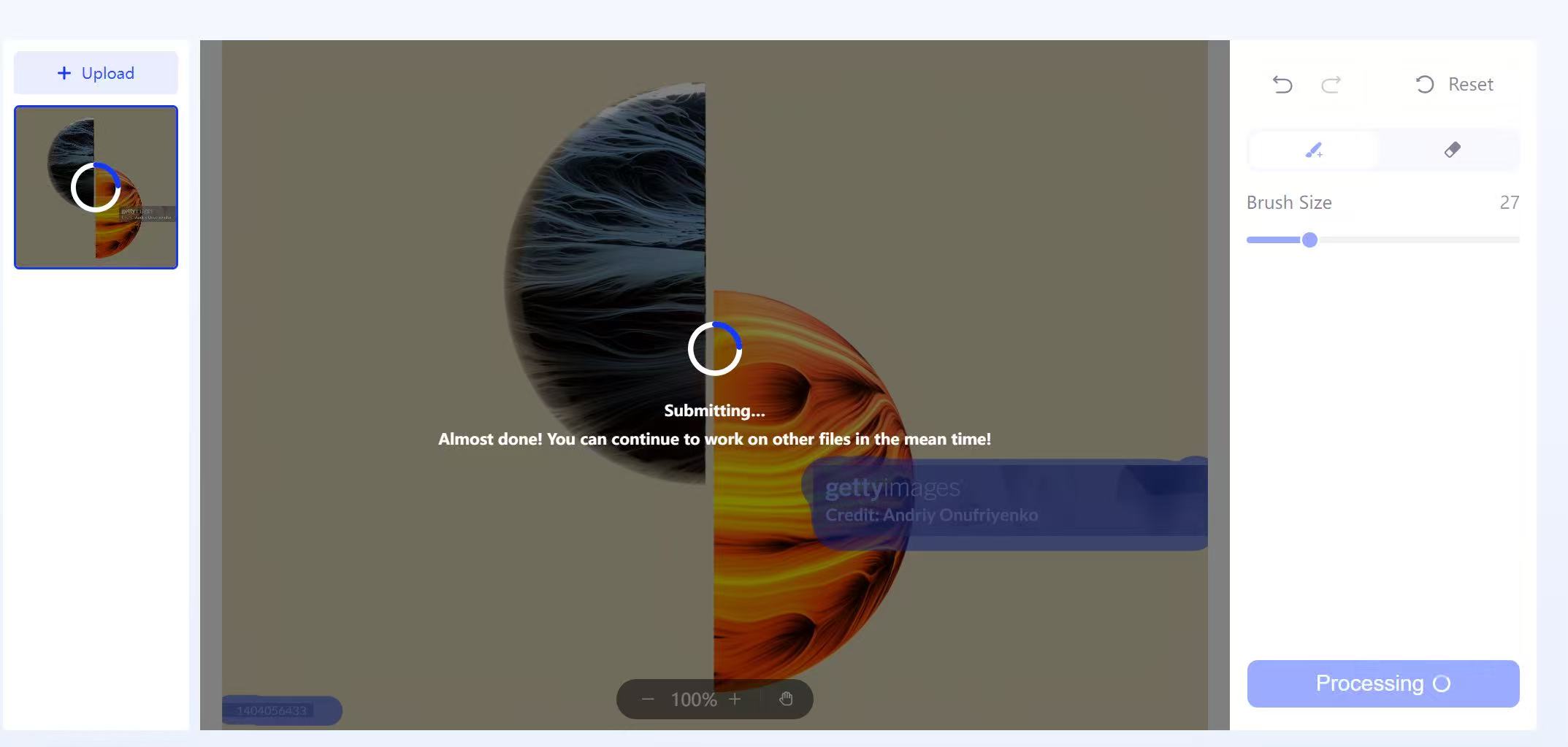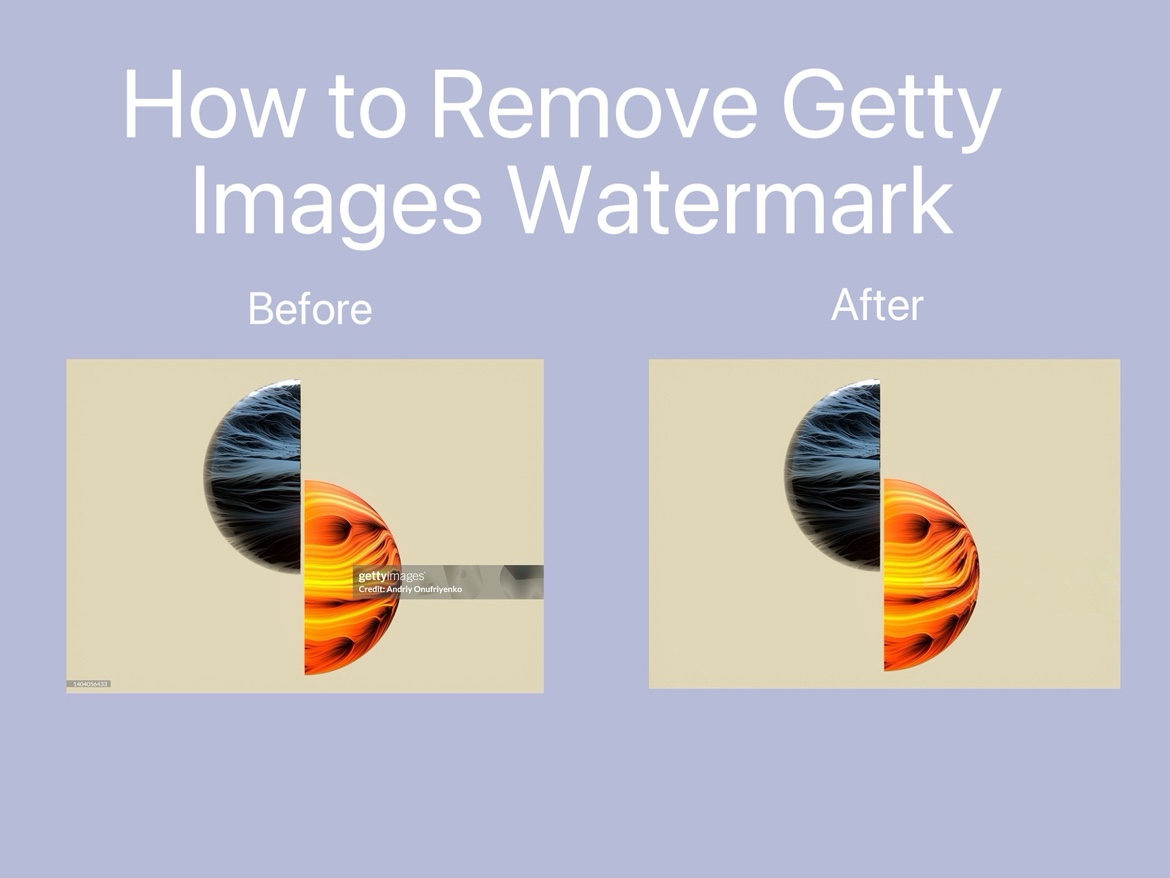Last Updated on August 26, 2025 by Xu Yue
Watermarks protect creators, but they do frustrate users who need just clean images sometimes. It’s even worse if you’ve ever had Getty Images slap their iconic grey watermark on your face without your consent because you were photographed by a newspaper. If you’ve ever searched how to remove Getty Images watermark, you have to believe that you’re never alone.
The good news: with the right tools and techniques, you can achieve clear, professional results—without wasting hours and hundreds of dollars. Let’s explore why watermarks exist, the challenges of removing them, and the best solutions, including GStory’s AI-powered watermark remover.
Why Do You Need A Getty Images Watermark Remover?
The Purpose of Getty Images Watermark
Getty’s watermark serves to identify ownership and discourage unauthorized use. As one expert notes, watermarks “protect Getty Images’ content and prevent unauthorized use,” and they are deliberately added “to stop misuse and encourage purchasing a license”. In practice, whenever you see a Getty watermark, it means the photo is a preview copy. The watermark reminds you that you must license the image for any real use. By keeping the watermark until payment, Getty ensures creators are paid for their work.
Challenges When You Need to Remove Getty Images Watermark
Removing a Getty watermark is tricky for several reasons. First, the watermark often covers key areas and blends with the image, making it hard to remove cleanly. As one guide explains, watermarks are “frequently visible and can be difficult to remove,” and their complexity depends on factors like position, color and shape. Second, Getty has built technical barriers: for example, the site now uses hidden keys in image URLs to block simple downloads. Reddit users have observed that Getty “patched” its code to make watermark removal much harder, forcing illegal downloaders to resort to AI methods. Finally, there are legal and ethical hurdles: as watermarkremover.io warns, removing a watermark without permission “constitutes a violation of the rights of the copyright holder” and can harm their reputation. In short, you need specialized tools or software to get good results, and you should only remove a watermark if you have the image owner’s consent or license.
How to Remove Getty Images Watermark?
Watermark removal can be done by painstaking manual editing or by using automated tools. Each approach has trade-offs in ease and quality. We’ll explain the two methods, then show how online tools work and share tips for best results.
Manual Editing vs. Automatic Tools
Manual editing involves using photo editors like Photoshop, GIMP, or Paint.net. Designers cover watermarks pixel by pixel with tools like the clone stamp or content-aware fill. It works but is slow and requires skill. Graphic watermarks, like logos or patterns, are especially tricky. Reviews show AI handles text watermarks well, but logos often need extra manual cleanup, which can leave faint artifacts if not done carefully.
Automatic tools detect and remove watermarks quickly. They can mark the area and fill it based on surrounding pixels. For example, GStory’s Watermark Remover lets you upload an image, select the watermark, and erase it while keeping the background intact. These tools are faster and easier, especially for simple text watermarks, though complex marks may still need a bit of manual touch-up. For most users, the speed and convenience outweigh the occasional extra effort.
How to Remove Watermark from Getty Images with Online Tools
Using an online watermark remover typically involves just a few steps. For example, with GStory’s photo watermark remover:
- Upload your photo firstly.

- Just paint over the watermark areas.

- Waiting for a while and download the new image.

The AI “intelligently analyzes the surrounding pixels and removes the selected element without blurring”. Other popular online tools (often free) follow a similar pattern: inpaint.me, Fotor’s watermark remover, and WatermarkRemover.io let you simply drag & drop the image and hit the processing button. Many such tools offer free trials or limited free credits. The key is to use a clean, uncropped image and to specify exactly where the watermark lies so the algorithm can do its best job.
Top Getty Images Watermark Remover Tools
Remove Getty Images Watermark Online
Several web-based tools specialize in watermark removal. These are often free or freemium:
| Tool | Features | Notes |
| GStory Photo Watermark Remover | New users get free credits; removes logos or text naturally | Requires registration |
| Picsman (Free Online AI) | Handles both text and graphic watermarks; one-click removal | Easy to use |
| WatermarkRemover.io (Pixelbin) | Quickly removes various watermark types | Warns about copyright; not for unauthorized use |
| Inpaint Online / Fotor | Can manually highlight and remove watermark areas | Manual process, slower |
| Remove.bg / Cleanup.pictures | “Erase” brush can sometimes remove watermarks | Mainly for backgrounds, watermark removal is secondary |
| Getty Images Downloader Sites | Claims to fetch watermarked images | Usually low-quality, possibly illegal, not recommended |
Popular Software Options for Removing Getty Images Watermark
If you prefer desktop software, several programs can remove watermarks:
| Tool | Features | Notes |
| Adobe Photoshop | Spot Healing Brush & Content-Aware Fill let you paint over watermarks to blend them in | Powerful but manual and time-consuming |
| GIMP | Heal tool and Clone tool for manual watermark removal | Free alternative to Photoshop |
| HitPaw Watermark Remover | AI-based, removes logos and watermarks from images/videos | User-friendly |
| Apowersoft Watermark Remover | Batch-remove watermarks from images/videos; just upload and draw over watermark | Very simple to use |
| Teorex Inpaint | Brush over watermark and click erase | Older but reliable |
| PhotoWorks (Watermark Remover) | Object removal features | Easy to use |
| Movavi Photo Editor | “Object Removal” brush | Works similarly to other object removal tools |
| Snapseed (Desktop via emulator) | Healing tool can remove small watermarks | Requires emulator on desktop |
Community Insights and Other Solutions
Online communities and forums reveal a range of opinions and workarounds when it comes to Getty watermarks.
Getty Images Watermark Remover Reddit Discussions
On Reddit and piracy forums, users share tricks and warn others about risks. In one /r/Piracy thread, users noted that Getty recently “patched” their system to block old download tricks. Many free “Getty downloader” sites now cheat by using AI to crudely erase watermarks, but the results look “plastic or deformed” As one commenter put it, Getty’s code changes “made it much more difficult to remove watermarks. That’s why these free image downloaders are using AI”. In other discussions, people caution that these methods can be low-quality and are definitely against Getty’s policies. In short, community wisdom says: be wary of quick hacks, and understand that if you illegally download a watermarked Getty image, you risk legal trouble (Getty actively seeks out infringers).
User Experiences on Getty Images Watermark Remover Tools
From user reviews and tech blogs, we see mixed feedback. Many content creators praise AI removers for convenience. For example, GStory’s customers rave about how easily it erased TikTok watermarks and other logos. However, experts note limitations: AI tools often excel on simple text stamps, but if the watermark is a busy logo or in the corner, small remnants can persist. One comparison found AIEase (an online remover) handled text well, but graphic marks left some residue requiring manual cleanup. Overall, the consensus is that results vary by tool and watermark complexity. It’s common advice to try multiple removers or do a quick manual brush if the first pass isn’t perfect. Always inspect the image closely – what looks good at a glance might still have tiny artifacts.
Copyright Issues You Should Be Aware Of
Before going further, remember that removing a watermark from someone else’s photo without permission is illegal. Getty has a history of aggressively pursuing copyright infringement like Disney. They employ sophisticated technology to track the unauthorized use of their watermarked and non-watermarked images across the internet. If an image is found to be used without a valid license, Getty’s compliance team can issue a demand letter for an infringement fee, which is often significantly higher than the original licensing cost. This is not merely a polite request; it’s a legal notice backed by statutory damages under copyright law.
Safer Alternatives: Free Stock Image Resources
Often, you don’t actually need a Getty image at all. There are excellent free image libraries that never have watermarks:
- Unsplash: A huge collection of free, high-quality photos under a generous license. In fact, “all images on Unsplash can be used for free, including for commercial purposes, without the need for attribution”.
- Pexels & Pixabay: Similar to Unsplash, these sites offer thousands of royalty-free images for any use. They are user-friendly and completely safe.
- Creative Commons & Wikimedia Commons: Many photos with permissive Creative Commons licenses are available. Just be sure to check the license details.
- Freepik & Flaticon: Good for graphics and illustrations (often requiring attribution).
- StockSnap, Burst (Shopify), and Gratisography: Other free photo sites.
Using these sources, you can often find a comparable image for your project without touching any copyrighted content. When a watermark is present on a photo, a good rule of thumb is: “If in doubt, find another picture.” Not only does this avoid legal risk, it can save time and headache.
Conclusion: Choosing the Best Way to Remove Getty Images Watermark Safely
If you have the proper rights to an image, removing a Getty watermark is a straightforward process with AI-driven tools. Services like GStory’s Photo Watermark Remover can eliminate watermarks while keeping the image quality intact. You can also find many online tools that offer free trials or a small number of credits to get you started.
Just remember, it is always illegal to remove a watermark if you don’t own the image. The most ethical choice is to either license the photo directly from Getty or find a high-quality free alternative. In short, there’s no way to shortcut image licensing, but if you have the rights to a watermarked photo, modern tools make the removal surprisingly simple and effective.
